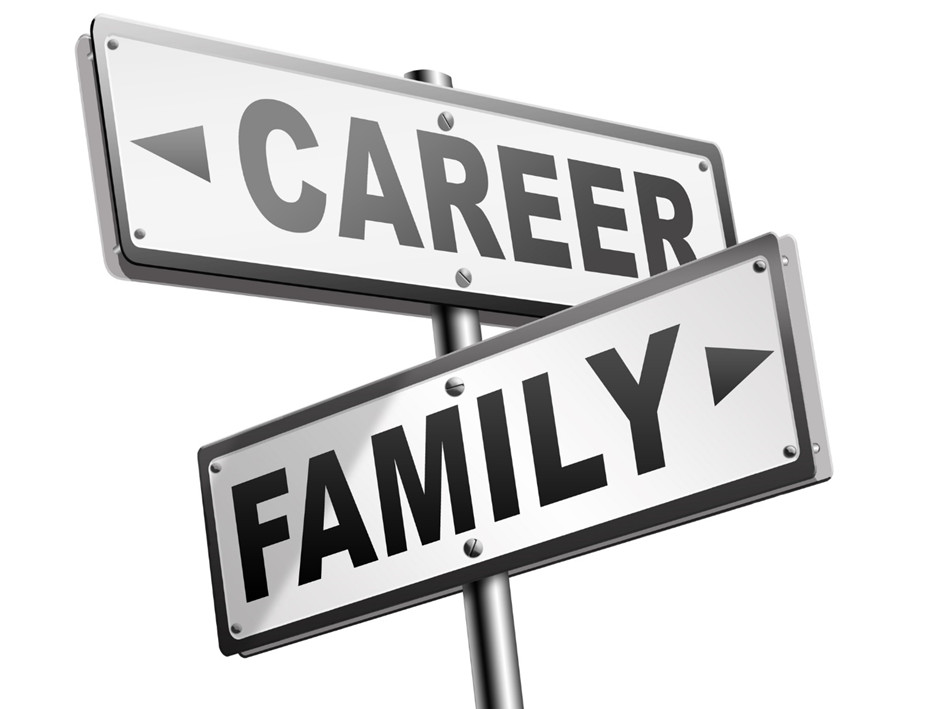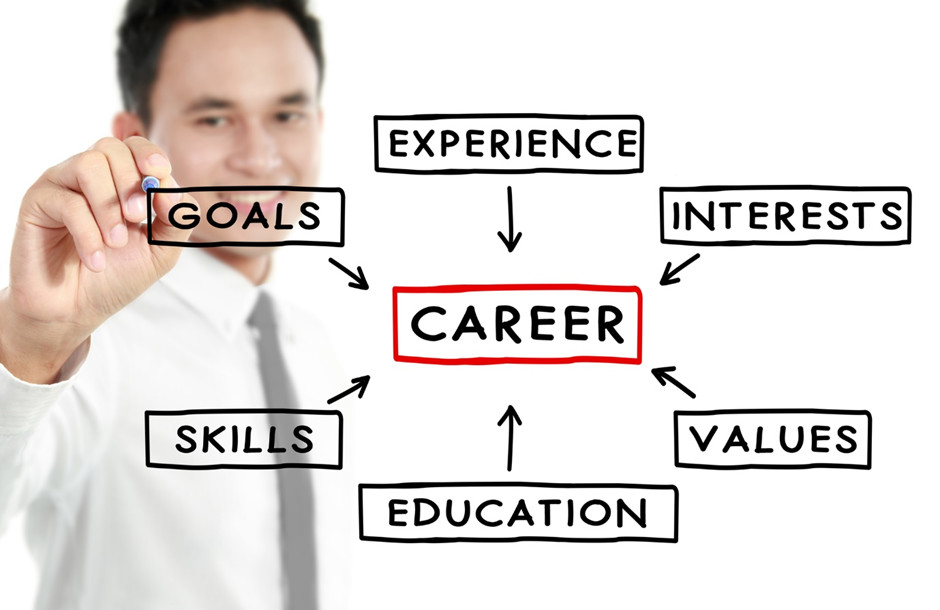Need Career Transition Assistance?
Let Ascend Communications help you navigate a successful career change.
Career Transition
- Life · Family · Finances
- Career Trajectory
- Tailored Action Plan
- Accomplish Goals
Career Coaching
- Attract Potential Employers
- Craft resumes, interview techniques, and networking
- Support
Shanklin & Associates
TE Connectivity
CVS Caremark Corporation
Career Transition in Today's Climate

Change or transition in life is inevitable. Sometimes change, such as losing a job or sudden illness, is unexpected. But other times, change, such as buying a house, changing your career, or starting a family, is planned as part of an intentional plan to live a better and more fulfilling life.
Transitions happen in all parts of life. And no matter how reasonable it is to accept them when they do happen, most of us resist change and find it hard to accept it. But the reality is, they give you an opportunity for personal improvement and to face your fears.
Planned transitions can bring you closer to living your ideal life, or at least to exploring what it would look like. One of those transitions is a career change – which can lead to a more fulfilling life.
Career Transition
What is a Career Transition?
A career transition is any significant change in a work context that may result in a change of profession, job, or change in an individual’s orientation to work while still working in the same environment, research explains. To put it simply, it’s the process of finding and changing a career.
What’s interesting about this process is that it can start years before you make a conscious decision on changing your career. As Work to The Wise explains, it may start the day you begin your current career by seeing or reading something, meeting someone, or daydreaming about your dream job. Sound familiar?
While this process is quite easy for some people, for others it can be difficult. It’s a time when you question your vision and yourself. During this significant period for you and your career, it’s important to surround yourself with people that understand you and support you.

The number of people in the U.S. changing their careers has drastically increased since spring 2021. It turns out millions of people are quitting their jobs and starting new careers or returning to their true passion. But what is the truth about this growing trend known as the Great Resignation?
What Is The Great Resignation?

According to the Inc., the Great Resignation is a term first coined by the Professor of management Anthony Klotz at Texas A&M University, in 2019. It describes a mass trend of employees voluntarily quitting their jobs because of the COVID-19 pandemic.
Namely, more than 11 million people in America left their jobs during the months of April, May, and June 2021, and the trend continues. While the effects are devastating for small and medium businesses, what’s happening right now is a huge wake-up call to employers, Forbes reports.
Employees are finally putting themselves and their families first, whether due to a lack of fair treatment, fear for personal safety, improper work-life balance, or dealing with a horrible boss.
They want to be recognized, trusted, and respected by leaders. Smart businesses should see the Great Resignation as an opportunity to prove that their businesses are good and caring places to work.
Reasons Why People Are Transitioning to a New Career
People have always jumped into new careers, but today this number seems to be higher than ever. The reason for that is the COVID-19 pandemic and the changes it brought to both personal and professional life. Common reasons why people are transitioning include:
- Retiring – a lot of seniors change their career before retiring even if it pays less so they can finally feel more fulfilled in their work, US News explains.
- Seeking a promotion or raise – for many people, changing careers is the only way to increase their salary.
- Opting for remote options – there are many benefits of working from home, including a better work-life balance, less commute-related stress, money savings, ability to create a comfortable home office, increased productivity, and happier and healthier work life, Flex Jobs explains. For some, this is also an opportunity to live in a more affordable place at the same or higher salary.
- Unsatisfactory leadership – sometimes people realize that working for their manager is not the best place for them, so they want to move on.
- COVID-19 pandemic-driven changes – according to Forbes, one in four women are considering changing their careers because of the COVID-19 pandemic. The whole situation has given people a chance to look deeply at how they spend their time. The pandemic has helped change people’s values. The family has become the number one priority and with people working remotely, they’ve realized how good it is to have more control over their schedule and work at their own pace. Enjoying a new work-life balance has made them happier and more fulfilled than ever, says Mercury News.

Impact of Career Transition

Career transition is a big thing in anyone’s life, so it’s natural that it’ll affect you in more ways than you might have expected. Moving into a completely new direction and changing a career can have an impact on your:
Life
Your new career may require moving to another city or country, adjusting to a different working environment, going through a training period, learning a new skill, changing your lifestyle to find time for learning the necessary material, changing your work-life balance (hopefully for the better), etc.
Family
The COVID pandemic has made a lot of people choose a new career path that allows them to work remotely which means more time for their family or hobbies. Still, some jobs require specific career skills which take time to learn. Others require traveling.
In both cases, your career transition would affect your family or the time you spend with them. So, consider your priorities and pick the industry or career path that’s most suitable for you.
Finances
Besides finding a fulfilling career, the goal of career transition can be to find a higher-paying job than your current one. In most cases, however, going after your dream job requires investment, especially if you’re starting a new business.
Making smart money moves during this process can lead to higher pay in the long run.


Career Trajectory
This term describes your career’s progression and is affected by every event and decision you make in the career context. Your career trajectory can move in a flat line or stagnate if you’re stuck in a job you hate.
But, jumping into a new career that fulfills you can propel you forward, although sometimes this involves taking a few steps “backward” like starting in an entry-level role or returning to school.
What to Consider If You Find Yourself in Transition
Finding yourself in career transition because you wanted a better job, higher salary, more time with your family, or because you had no other option after losing your job will be easier for you if you take the following things into consideration.
Being aware of these things will help you sell your experience by helping your new employer see the value you will bring to their team.
- Where you’ve been – think about the role you had in your life before the transition and your previous job and what you can learn from it. Knowing which aspects of your last job you want to change can help you move in the right direction, Big Life School recommends.

What Are Career Transition Services?

Career transition coaches usually offer the following services:
- Evaluating the client’s accomplishments and skills
- Setting realistic objectives and goals
- Developing resume
- Developing a tailored action plan for the client’s job search
- Preparation and training for interviews
- Tracking progress and ensuring the client is consistently moving toward set goals
- Ongoing coaching and support if needed

Career Transition Services
Get the Job You Want
Career Coaching

Career coaching is getting the guidance, help, and support you need to understand and reach your career goals. It’s about overcoming any challenges—real or perceived—you’re facing while figuring out and searching for your dream job.
Even though it’s up to you to decide you want to switch careers, a career coach is there to help you do it better, faster, and easier.
The sooner you understand the importance of career coaching, the quicker you’ll make a successful transition to the next career in your life. So, let’s start by explaining the role of career coaches in people’s career transition journey.
What Is a Career Coach?
A career coach is a professional who has skills such as resume building, career planning, negotiating, and interviewing that can help you discover and accomplish your career goals, Business News Daily explains.
This expert is up to date with current recruiting trends which is extremely helpful if you want to change your career or look for a new job.
What Does a Career Coach Do?
These experts know how to identify the best aspects of your working experience and present them in a manner that will attract potential employers.
They are skilled at crafting resumes, interviewing techniques, career planning, and network building.
Career coaches provide you with support, insight, and the direction you need to achieve your career goals. They help you set realistic goals, identify challenges and find solutions for them, boost your self-confidence, motivate you to take action, and hold you accountable to your goals.

What Career Coaches Don’t Do
Career coaches are not therapists or counselors. Coaches help you develop proficiencies, while career counselors help you to overcome your deficiencies.
They don’t deal with the “why’s” of your history like therapists do but focus on how to help you build the career of your dreams – starting where you are.
Unlike counselors, their goal is more than writing a compelling cover letter and ensuring you get into the interview. Coaches help you to find the perfect career for you that will ensure you work something that you love by coaching you to take the right action.
Career Coaching vs. Career Counseling
The two skills are very similar in nature, but there are things that make them different. Career counseling focuses on providing industry information and advice to aid your job search.
Career coaching involves the same while also paying attention to your strengths, values, and interests, thus helping you to build the perfect career path for you.

Executive Career Coach Vs. Career Coach

Both skills sound like similar concepts, but each is supposed to fulfill different function. Even though both types of coaches work with people to improve specific aspects of their job performance, the main goal of career coaches is to benefit one person in terms of their individual career trajectory.
On the other hand, executive career coaches are supposed to benefit an entire company or organization.
Why Coaching Works
You may never present your capabilities in the job market as well as a career coach can. That’s because they can see you as recruiters and hiring managers see you.
What’s more, they can provide the guidance and advice you need to build a professional image and strategy that will help you get the job you want.
Generally, career coaching works because of the following two reasons:
It’s you-centric
It means it’s centered on you, your desires, your capabilities and skills, your questions and doubts, your career, and your future.
A good career coach is here to inspire and challenge you to do your best, support you through each step of the process, be honest, back you when needed, give you space and time to talk about what you want and how you feel, and what your career goals are.

It’s Tailored to Your Specific Needs
Good career coaching involves treating every client as a unique client. As Forbes explains, good coaches ask questions and listen to you, so they understand your goals and any specific results you expect from your engagement with them. As a result, they can create a specific action plan for your career transition or progression. The ideas, advice, and suggestions they give you are tailored to your needs.How to Hire a Career Coach
Hiring a career coach is one of the best things you can do for your professional life. However, it’s important to choose someone that’s an expert in the field and not the first random coach you find online. Knowing what to look for in them and what to ask them can help you choose the right one for you.
What to Look for in a Career Coach

Before investing your time and money in hiring a career coach, consider the following when doing your research:
- Their professional qualifications and credentials
- Their relevant experience and strong training
- Their coaching tools and methodologies
- Their ability to connect with you and make you feel comfortable with them
What to Ask Before Committing
No matter if you are working with a career coach for the first time or not, Forbes recommends asking the following questions before hiring one:
- “How can you help me?”
- “How do you define success?”
- “What is your success rate?”
- “How would you handle telling me I’m wrong?”
- “How will you know if I’m the right client for you?”
- “What can I do to change?”
- “How will you help me define success for myself?”
- “What is your process?”
- “What is your cost per session or hour?”
- “Can I speak to other clients about their experience with you?”
- “Can you tell me how to best manage my professional and personal life?”
The answers to these questions will help you decide if a potential coach is the right one for you.
How Much Does It Cost to Hire a Career Coach?
Most career coaches charge by session which usually lasts 45 to 60 minutes. The average cost per session is $100 – $150, Indeed reports. Some prefer charging by the hour, so it’s best to ask before hiring them. Others offer coaching packages that are often most cost-effective.
What Career Coaching Involves
It’s important to understand that your career coach can’t just tell you what to do. Instead, the process involves working together to uncover your aspirations and work-related goals. Only then can you discuss possible options, develop the necessary skills, and determine a personalized career action plan.
In general, the process of career coaching can be divided into three steps:
#1 Assessment
The first part of the process is an assessment of your interests, abilities, personality, experience, and other factors that can help the coach guide you toward your best career options.
Through conversation and a variety of assessment tools, the coach can determine your strengths and weaknesses, specific traits, leadership style, unique values, communication style, etc., and how they relate to the world of work.
The main purpose of the assessment is to encourage self-discovery by providing you with absolute clarity about your work goals. Once they know this, they can assist you in achieving your goals.


#2 Partnership
CIO gives a nice definition of what a career coach is – your partner in growth. Successful coaching is a partnership between you and your coach, a creative process that aims is to inspire you to maximize your professional and personal potential. Effective coaching unlocks untapped sources of productivity, imagination, and leadership, International Coaching Federation explains.
Instead of telling you what you need to know or accomplish, a career coach helps you achieve what you want by asking you open-ended questions, listening to you carefully, providing objective feedback, guiding you to develop the necessary skillset, and ensuring you achieve your goal.
#3 Career Search Campaign
Once the career coach discovers the work that’s motivating and fulfilling for you, they partner with you to create a career search campaign to help you achieve your goal. They do that by providing the following services for you:Resume Writing Services
Knowing the most important aspects of your work experience and goals allows career coaches to help you create, tailor, or update your resume.
They ensure the document looks professional and neat by using the right industry language, optimizing the structure, and formatting it. They help you select the most appropriate skills, experience, and other accomplishments or certificates, for your resume to get noticed.
Cover Letter Writing
Most career coaches offer cover letter writing that helps you introduce yourself in a personal and memorable way so that you stand out from the crowd.
They align your interests and skills to the job for which you’re applying to give you the best chance of securing an interview.
Also, they ensure the cover letter is visually organized while the format matches the industry and company to which you are applying.

Creating LinkedIn Profile
Managing your LinkedIn profile well is crucial if you’re looking for a new job or career. And that’s exactly what a career coach will do for you. They will help you create and organize your profile so that it better appeals to recruiters.
Crafting Digital Portfolios
There are many ways that career coaches improve your chances of getting the job you want and helping you to create a digital portfolio is one of them. A good coach will ensure your portfolio consists of your best work to demonstrate to hiring managers that you’re capable of doing the job they offer.
Job Interview Prep

Job interviews can be nerve-wracking as they can make or break a job offer.
A career coach helps you prepare and manage interview-related anxiety.
Networking Outreach
Interview Preparation Tips
Here are a few of the many interview preparation tips that your coach will share with you:- Research the company and industry
- Clarify the reasons you want the job
- Have a few selling points in mind
- Prepare your answers to common interview questions
- Practice
- Think positive
Common Interview Prep Questions
Your career coach will not only tell you what questions to expect during your interview, but will also help you craft the best responses.
The Muse shares some of the most common interview questions:
- “How did you hear about this job position?”
- “Why do you want this job?”
- “What can you bring to the company?”
- “Why should we hire you?”
- “What are your greatest strengths and weaknesses?”
- “Can you explain why you changed career paths?”
- “What are you looking for in a new position?”

Preparing for a Management Interview
Your performance in an interview for a management position will tell the recruiting manager whether you can effectively lead employees to carry out the company’s mission. That’s why seeking help from a career coach is a good plan to get hired. The coach will help you prepare for the interview and feel confident to explain why you should get the job.
Interview Follow-Up
Career coaches guide you through the follow-up process after your interview. They suggest you use strategic follow-up techniques which can help you impress the recruiting manager and keep the process moving forward, keep a few job possibilities in play, and negotiate salary and benefits.
In summary
Changing careers has never been as common as it is today, and although a bit risky, you can’t grow if you’re not willing to take risks. But, to minimize the risk and increase your chances of landing your dream job, you should ask a career coach for help.
The purpose of career coaching is to make the career transition process easier and quicker for you by helping you to discover your work goals, develop related skills, and get those goals accomplished.
That is why hiring a career coach is one of the best things you can do for your career and life.
Frequently Asked Questions
If you suspect that you’ve been wrongfully terminated, laid off, furloughed, or find yourself asking any of the following questions, you should consult with an attorney.
Consult an attorney.
Consult an attorney.
Consult an attorney.
Consult an attorney.
Consult an attorney.
Consult an attorney.






